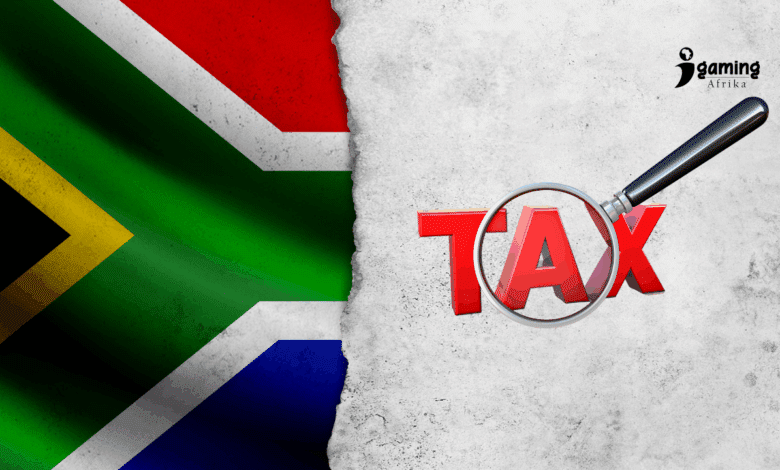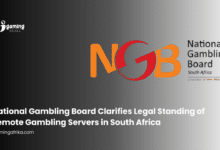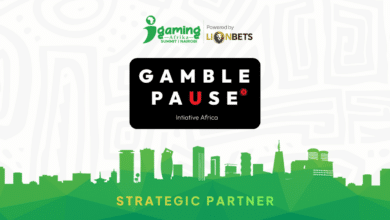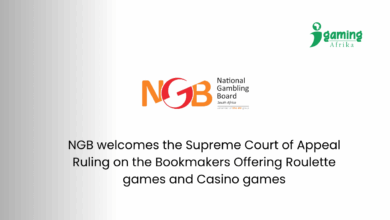South Africa Proposes 20% Online Gambling Tax as Online Betting Surges

South Africa’s gambling landscape is undergoing a fundamental shift, and the government is preparing to respond. The National Treasury has released a discussion paper proposing a new national online gambling tax, arguing that the rapid rise of digital betting has outpaced both policy and regulation. The document paints a picture of an industry transformed by technology, increasingly dominated by online platforms and marked by growing social harms that existing laws were not designed to manage.
The numbers are striking. In the 2024/2025 financial year, South Africans wagered approximately R1.5 trillion, a sharp 31.3 % increase from the previous year. Betting now drives three-quarters of this activity, dwarfing casinos, bingo, and limited payout machines. Gross Gambling Revenue climbed to R74.5 billion, with betting alone contributing nearly 75%. The National Gambling Board reports that more than 85% of betting revenue now comes through online channels, confirming that gambling has decisively moved into the digital sphere.
Participation has surged as well. The national incidence of gambling rose from 30.6 % in 2017 to 65.7% in 2023, with young adults emerging as the most active segment. The paper released on 25 November cites evidence linking gambling to financial distress, family breakdown, mental illness, and in extreme cases, suicide. These negative externalities form the core of government’s case for intervention.
Despite this shift online, South Africa’s regulatory system remains anchored in a framework designed two decades ago. While provincial gambling boards license and tax land-based operators and online bookmakers, interactive gambling such as online casino-style games remains illegal because the 2008 amendment intended to regulate it was never implemented. This patchwork has created loopholes, inconsistencies, and a growing disconnect between the law and how people actually gamble. Provincial tax rates also vary, and low rates on online betting have not kept pace with the social costs associated with digital play.
Treasury’s proposal seeks to fill this regulatory gap. It recommends introducing a 20% national tax on gross gambling revenue from online betting and any interactive gambling activity, even where the latter remains illegal. “Due to the surge in online gambling and its impact on society, it is proposed that a 20% tax is applied on gross gambling revenue from online betting, including interactive gambling, which would be in addition to the currently applied provincial taxes,” the paper read.
Local online betting suppliers will be required to register and provide SARS with the same information currently submitted to provincial gambling boards for the collection of provincial gambling tax revenue. This measure is expected to simplify administration and improve industry compliance. Where local operators engage in interactive gambling, which remains illegal, they will also be subject to the proposed tax, based on the gross gambling revenue generated from these activities.
Read Also: South Africa Hails Removal from the FATF Grey List as Confidence in the Economy Rises
The approach mirrors international practice in jurisdictions confronting similar challenges, where national governments have stepped in to regulate and tax online gambling consistently across their territories. Treasury argues that provinces simply cannot manage an activity that crosses borders so easily.
The proposed tax would sit on top of existing provincial gambling levies, lifting the combined effective rate to between 26 and 29%. While the revenue potential is significant, more than R10 billion annually based on current gambling turnover, Treasury stresses that the goal is not fiscal extraction. Instead, the tax is intended to curb harmful behavior, reflect the social cost of gambling, and reduce the competitive pressure that drives provinces to keep their own gambling tax rates low.
Experts have however, warned that the proposal raises legal, constitutional, and enforcement challenges. Commenting on the proposal, Wayne Lurie, Founder and Director at Lurie Inc Attorneys, highlighted the legal and constitutional tensions it raises. He noted that while the paper presents a 20% national tax on gross gambling revenue from online betting and interactive gambling as a neat solution, interactive gambling remains illegal under South African law. Including unlawful activity in the tax base, he argues, risks blurring the line between legal and illegal operators and undermines the provincial regulatory framework that has governed gambling for more than two decades.
“Treasury’s own paper acknowledges that interactive gambling is illegal, then, in the next breath, proposes that the new national tax base will include revenue from it. The message to the illegal offshore market is effectively this: you may carry on offering products that the statute still treats as unlawful, provided that you calculate your gross gambling revenue carefully and pay a new national tax,” he commented. He warned that this approach risks blurring the line between legal and illegal operators and could complicate enforcement while undermining the provincial regulatory framework.
A uniform national tax, the paper argues, would reinforce regulatory consistency, reduce opportunities for arbitrage, and help ensure that the rise of online gambling does not undermine the nation’s broader policy objectives. It would also place South Africa more firmly in line with countries such as the United Kingdom, New Zealand, and several Australian states, which have introduced similar measures as gambling moved online.























